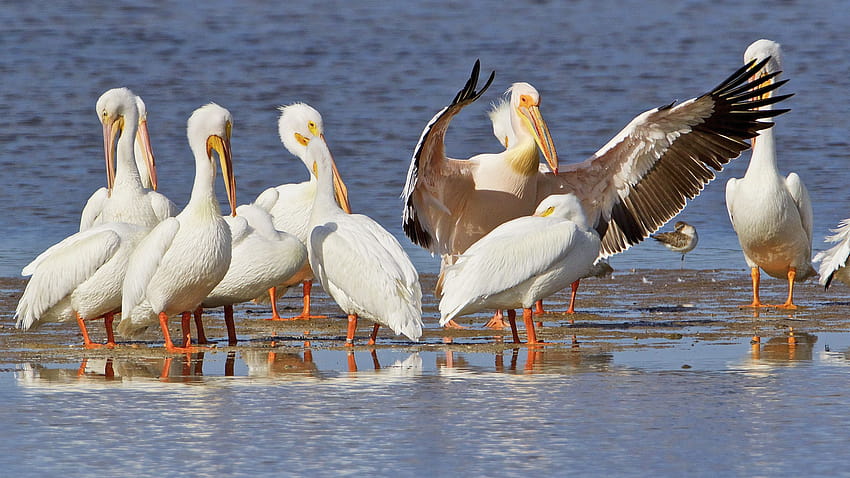Table of Contents
Introduction to the Wetlands Permitting Challenge in Florida
Wetlands Permitting Challenge by Florida: Wetlands in Florida are essential to the environment as they provide habitat for various animals. Yet, the State faces significant hurdles when it comes to wetlands permitting. New regulations are coming up, and citizens and builders find themselves in an environment with more legal constraints. The wetlands permitting challenge by Florida is not merely an administrative issue- it is a real problem that connects environmental concerns with economic ones. Given these changes, it is essential for everyone involved or interested in Florida’s ecosystems to understand the troubles behind these alterations.
Understanding Wetlands and Their Importance

Wetlands, also known as swam’s marshes” r peatlands, are Amazon’s most advantageous ecosystems because they assist in sustaining equilibrium within a geographical area. During heavy rains, these areas become wet, and the problem of flooding is mitigated.
These regions are also suitable for a flourishing diversity of wildlife, including various forms of flora and fauna, migratory birds, amphibians, and other life stages that form a part of the food chain.
Moreover, wetlands cleanse the water from detrimental substances before allowing it to flow into rivers and lakes. This eventually guarantees humans and animals access to clean water sources.
A properly functioning wetland system has a substantial economic advantage as it supports ecotourism, commercial fishing, and bird-watching activities. It is also required as a factor of earning for people who use these natural resources.
Comprehending these functions makes it clear that conserving and protecting wetlands is crucial in achieving ecological balance, peace, and harmony in society.
The History of Wetlands Permitting in Florida
Over the years, Florida has undergone many changes in its handling of wetlands permitting processes. At first, wetland areas mainly were viewed as hurdles. This reasoning resulted in the excessive draining and infilling of these indispensable ecosystems.
Around the end of the 1970s decade, it was emphasized that wetland areas have essential ecological functions. Many wetlands deserve some attention; therefore, the federal government introduced some protection measures. Florida implemented such measures independently but in the form of permits.
The State has spawned an intricate lattice of local, State, and federal laws concerning wetland activities. These regulations are intended for economic and environmental objectives, but they often cause misunderstandings among developers and ecological preservationists.
Increases in urban development also saw increases in court cases over wetland permits in Florida. Stakeholders had to find common ground between the urge to develop and the need to conserve biodiversity and natural water bodies—such eternal competition to obtain resources shaped the existing policies in several ways.
Legal Challenges Faced by the State
Wetlands permitting issues are numerous in Florida, and overlapping state and federal requirements contribute to this. This is where the confusion sometimes begins regarding how best to interpret the Clean Water Act.
Disputes often arise when environmentalists appeal permits issued by the State. The reason for such appeals is generally to claim that the specified permits do not adequately safeguard crucial life forms. Such backlash effectively creates uncertainties for developers and their clients.
Furthermore, landowners often need more support with the permitting processes involved in the projects. The factors that cause all the frustration include delays and the movement of the goalposts regarding the requirements. Consequently, many go to court rather than determining the next steps toward realizing the development plans.
These on-and-off court disputes emphasize the inadequacies in FloFlorida’stland regregulationFlorida’sncerning both conservation measures and management strategies. Until they are resolved, the tension between environmental protection and economic advancement will continue perpetuating.
Impact on Environment and Economy
Florida’s move to permit the delineation of wetlands is a matter of great concern for biodiversity and the economy. Wetlands are critical physical environments; they assist in pollution removal and flood water retention and host a multitude of living organisms. Degradation of their habitat alters these essential processes.
The economic effect is equally alarming. Numerous industries, including tourism, fishing, and farming, rely on wetlands for proper functioning. A decrease in the expanse of wetlands will ultimately result in reduced biodiversity ranges and natural resources.
Furthermore, legal issues about permits may put construction developments on hold. Such uncertainty needs to be more enlightening to investors and developers, as it will affect the area’s employment level.
Despite this, wetland-dependent economies are more exposed to that potential loss of service. Over time, such scenarios can stifle the available avenues for growth while increasing environmental issues within the various regions of Florida.
Solutions and Possible Changes to Wetlands Permitting Laws
FloFlorida’stlands perpermittinFlorida’sgen be solved only through creative methods. One avenue that can be considered in this case is the automation of the application processes. A more streamlined system that relies on simplified forms and less red tape would allow interested stakeholders to obtain the necessary permits in a shorter period.
Integrating new tools, such as GIS technology, could improve overall planning. This tool would enhance the mapping of the wetlands so that such areas would receive the necessary coverage, but not when development in such locations is warranted.
State agencies, civil society, and developers must effectively participate. They can have regular meetings to learn from each other and create beneficial outcomes.
Moreover, a tiered permitting system could also add the needed flexibility. For instance, permitting authorities can focus on the biological importance of different wetland regions to ensure the efficient use of crucial sensitive ecosystems.
These strategies are just possible solutions to the problems facing the wetlands of Florida; considering all the regulatory changes that need to be made, so much can be pursued. However, explaining these strategies to local communities will make the efforts even more effective.
Conclusion
The wetlands permitting dilemma posed by Florida can be characterized as a multi-layered legal, environmental, and economic concern. While the State strives to anchor these challenges, it is imperative to appreciate the wetland’s contribution to the ecosystem’s harmony. The history regarding the issue of wetlands permitting is that of continuity in transition, where past settlements are relevant for contemporary rule setting.
Legal battles are indeed changing the outlook for wetland management in the State of Florida. Stakeholder protection arises from several areas of the stakeholders’ community, and handling this situation would be quite tricky and sophisticated for all the parties involved.
Tackling these issues will address environmental concerns and create opportunities for sub-regions where the welfare of populations is based on healthy ecosystems. Regarding novel practices and humankind’s essential ref reform, humankind sites could revolutionize the approach towards developing and promoting ecologically friendly practices.
As the debate heats over the best ways to address and manage the heated discussion on Competitive wetlands, FloFlorida is clear that consensus will always be necessary for environmental protection and further development needs.
FAQs:
Q1: What is the wetlands permitting challenge posed by Florida?
It deals with the legal issues and issues relating to regulating the development of wetlands in Florida in a manner that balances development and ecological aspects.
Q2: Why are wetlands important ecosystems in Florida?
Wetlands are essential in preventing flooding, protecting habitats, and even filtering water, a crucial element of Florida and its economy.
Q3: What are the wetlands permitting issues faced by Florida?
Florida’s wetlands permitting challenge is attributed to an overlaying of state and federal laws, which leads to mix-ups and delays.
Q4: How has the wetlands permitting in Florida changed over time?
In the past, Florida drained wetlands for agricultural and other activities, but with the increased awareness of ecological issues, it is now protecting wetlands and issuing permits to do so.
Q5: What legal issues does Florida wetlands permitting face?
When permits are applied for, disputes sometimes arise due to insufficient environmental protection, which usually results in confusion and prolonged processes.
Q6: What are the detrimental effects on the environment caused by the Florida wetlands permitting delays?
Florida’s biodiversity will decrease, water pollution will ensue, and interference with flood control measures will be projected environmental issues caused by such delay.
Q7: How important are wetlands in the economy of Florida?
Wetlands are driven by agriculture, tourism, and fishing, so Florida’s wetlands permitting challenge is of huge economic significance.
Q8: What is the approach of Florida towards the wetland permitting issues that they have?
Some possible solutions include streamlining processes, employing technology such as GIS, and increasing cooperation between developers and environmentalists.
